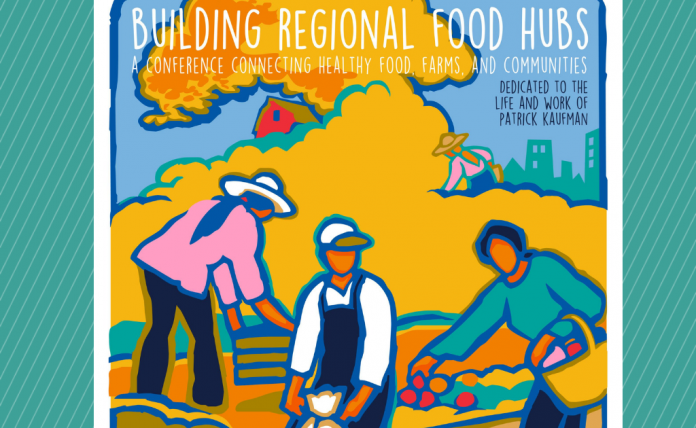The USDA defines a food hub as a “business or organization that actively manages the aggregation, distribution and marketing of source-identified food products primarily from local and regional producers to strengthen their ability to satisfy wholesale, retail, and institutional demand”, but food hubs do much more. Food hubs are a catalyst for community wellness. They address problems of food insecurity and connect community members to the source of their food.
Building a regional food hub requires collaboration of multiple partners. Each partner contributes unique strengths and resources to the project. Community stakeholders amplify success by participating in project planning and execution and supporting the food hub in their community.
In 2018 the Ohio State University’s Initiative for Food and AgriCultural Transformation (InFact) partnered with the Methodist Theological School in Ohio (MTSO), Seminary Hill Farm, and Franklinton Gardens Urban Farm, to develop a model for food hub businesses in underserved urban communities. The organizations invite community stakeholders, individuals and organizations to attend the Building Regional Food Hubs Conference on Nov. 9.
The conference will host local food leaders from across the state of Ohio. Anna Haas from Local Food Connection will share online possibilities for urban food hubs. Piper Fernway will describe how Bon Appetit Management Company connects institutions to local food in Appalachia. Leslie Schaller, the founder of the Appalachian Center for Economic Networks’ (ACEnet) Food Venture Center and Nelsonville Food Hub, will tell how ACEnet helps producers enhance their businesses with value-added products.
The conference will feature a panel of practitioners discussing challenges and opportunities for producers in food hub models. Panelist Tadd Petersen, manager of Seminary Hill Farm, notes that producers face many challenges. Tadd says, “Storage is the number one barrier facing producers.” Food hubs can provide aggregation, packing, processing and storage space to help farmers expand business capacity. Seminary Hill Farm works with 30 local farms to provide catering and event services, supply MTSO’s dining facilities with farm fresh food, and operate a 300-member Community Supported Agriculture (CSA) subscription. A tour of Seminary Hill Farm will follow the conference.
Attend the Building Regional Food Hubs Conference
Date: Friday, Nov. 9, 2018
Time: 9 a.m. to 4 p.m.
Location: Methodist Theological School in Ohio, 3081 Columbus Pike, Delaware, Ohio
Fee: $10
To learn more and register for the event visit www.mtso.edu/foodhubconference
References
1. Barham, James, Debra Tropp, Kathleen Enterline, Jeff Farbman, John Fisk, and Stacia Kiraly. Regional Food Hub Resource Guide. Washington, D.C. U.S. Department of Agriculture, Agricultural Marketing Service. April 2012.













